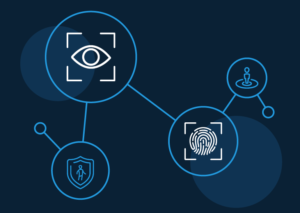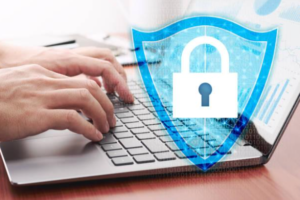One of the essential issues every real state business should address is cybersecurity and protecting sensitive information and documents online. Every real estate transaction and communication prior to the transaction requires the exchange of certain sensitive information. It is in every real estate business’s interest to keep their security levels high to protect these valuable pieces of information. Keep reading to learn more about protecting personal information online in real estate transactions.
First, you should be careful about sharing personal information and sensitive documents – you should have a safe and secure way of doing that. Also, you shouldn’t post personal information or photos of your clients on social media without their permission. You should build a strong security system and be mindful of changing wiring instructions. Additionally, you should obtain an SSL certificate and create a strong password.
- Be careful about sharing personal information and sensitive documents
As you know, in real estate transactions and communication, we need to disclose various personal information and sensitive documents. However, we should be careful regarding this issue – real estate agents asking for this kind of information via email and clients sharing the same ones via email. Sharing information and documents via unsecured, unencrypted email platforms is risky. This is precisely what hackers seek: sensitive information they can use to create phishing schemes and present themselves as legitimate stakeholders to commit fraud. To prevent that from happening, you should share personal information and sensitive documents by employing a secure document upload or transaction management platform.
- Don’t post personal information or photos of your clients on your social media without their consent
Another thing you should avoid doing to protect your clients’ security is posting personal information or photos of your clients without their consent. Some agents use their social media channels to be funny and joke about their clients and listings, which can create several issues. Even though the agent probably has no bad intentions, it can be seen as that. This kind of silly behavior can create a security problem for a business by starting professional disciplinary action. You should obtain signed waivers for client photos and marketing materials to prevent this. If you get permission from a client to post such photos, avoid posting photos that involve children or identifying information that would make it easy for your client to be tracked down in real life.
- Build a strong security system
Generally, what you should do as a real estate business is build a strong security system that will protect both your business and your clients. You should take security seriously and build a functional yet safe system for managing personal information and sensitive documents. You should train your agents to follow all the protocols and never make exceptions. Even the tiniest non-adherence to rules can result in a potential security breach. And when this happens, it is tough to deal with it successfully. From a client’s standpoint, you should be working with plausible agencies that take security seriously and do their best to make doing business safe and secure. You should only work with professional agencies, such as Curtis Associates.
- Be mindful of changing wiring instructions
One of the most common ways criminals obtain sensitive information is through fraudulent wiring instructions. Most often, they send legitimate and valid emails to confirm ‘wiring changes’. Supplying them with the information they ask for puts your company and clients at risk. Before replying to such emails, you should double-check with your provider or lawyer before replying to such emails.
- Get an SSL certificate and create a strong password
Even though getting an SSL certificate for your real estate website is implied, we will still mention it. A Secure Sockets Layer keeps your website safe. This certificate encrypts online data and passes through a secure connection. This protection makes it hard for hackers to steal information from your website. As a client, you can quickly check if a website has this certificate. If there is HTTPS at the beginning of their URL, it is secure. A green padlock and a secure label tell you the website uses the SSL certificate.
Cybersecurity is a genuine threat to all the people who use the internet for diverse online transactions, so we should be considerate about protecting our business and clients.







Be First to Comment